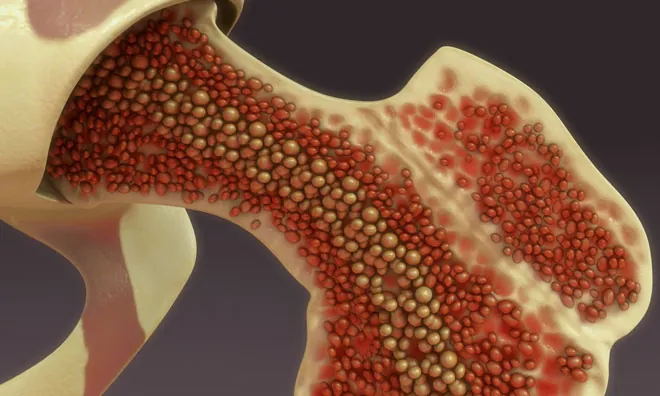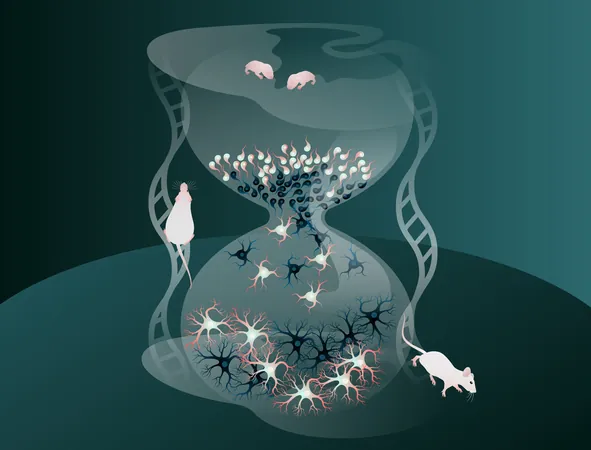
Revolutionizing Cancer Treatment: How BCG Enhances Your Immune System at the Source!
2025-06-06
Author: Yu
BCG: A Game-Changer in Cancer Immunotherapy
A groundbreaking study sheds light on how Bacillus Calmette-Guérin (BCG), a decades-old treatment for bladder cancer, is transforming the immune landscape by reprogramming bone marrow to enhance the body’s defense against cancer!
Historical Significance of BCG
More than 30 years ago, the FDA approved BCG as the first ever immunotherapy for bladder cancer. Although it’s been around for years, its role in managing early-stage bladder cancer remains vital. Recent insights from Weill Cornell Medicine and Memorial Sloan Kettering Cancer Center challenge our understanding of how this therapy functions.
Debunking Myths: How BCG Truly Works
BCG, a weakened strain of Mycobacterium bovis, was initially created as a vaccine against tuberculosis. When applied in bladder cancer treatment, it’s infused directly into the bladder, believed to attract immune cells to attack nearby tumors. Yet, scientists questioned whether the immune response was targeting the bacteria or the tumors themselves.
Dr. Michael Glickman of MSK stated, "This therapy was proven effective before we fully grasped the mechanisms behind it." This new research dives deeper into BCG’s operation at the cellular level.
Reprogramming Immune Cells: New Insights
Published in *Cancer Cell*, Dr. Glickman and his team uncovered that BCG’s influence extends far beyond the bladder—reprogramming bone marrow stem and progenitor cells to enhance the production of myeloid immune cells that are primed for cancer combat.
Dr. Steven Josefowicz added, "Now, it’s evident that BCG boosts the innate immune system’s capacity to fight cancer." This system acts swiftly and broadly, meaning it can tackle tumors more effectively.
Tracing BCG’s Journey
Earlier assumptions held that BCG had localized effects. However, this study reveals its travels from the bladder to bone marrow, where it modifies the hematopoietic stem cells—essential for creating new immune cell types. Using an advanced technique known as Progenitor Input Enrichment single-cell sequencing (PIE-seq), researchers demonstrated that BCG significantly enhances the gene activity responsible for generating potent immune responses.
A Dynamic Duo: BCG and Checkpoint Inhibitors
One of the most thrilling aspects of this research is how BCG synergizes with checkpoint inhibitors—another form of immunotherapy that unleashes the immune system's full potential. In mouse models, BCG-prepared myeloid cells boosted T cells' effectiveness, resulting in impressive tumor reductions and prolonged survival.
Dr. Josefowicz emphasized, "This has significant implications for enhancing existing immunotherapy strategies through innate immune responses."
Future Horizons: Expanding BCG's Reach
Though still in preliminary stages, the researchers are investigating whether BCG’s immune-boosting effects could apply to other cancers beyond the bladder. The potential for developing new therapies mimicking BCG’s training effects, without live bacteria, is on the table—particularly beneficial for patients with less accessible cancer types.
Conclusion: A Timeless Treatment, Reinvented
This pivotal study elevates our understanding of BCG’s role in cancer treatment by illustrating how it enhances the innate immune system at the bone marrow level. The implications may not only improve bladder cancer therapies but could revolutionize immunotherapy approaches across the board.
As researchers continue to unravel the complexities of the immune system, the unexpected breadth of BCG's capabilities could lead to more effective and wide-reaching strategies to combat cancer.


 Brasil (PT)
Brasil (PT)
 Canada (EN)
Canada (EN)
 Chile (ES)
Chile (ES)
 Česko (CS)
Česko (CS)
 대한민국 (KO)
대한민국 (KO)
 España (ES)
España (ES)
 France (FR)
France (FR)
 Hong Kong (EN)
Hong Kong (EN)
 Italia (IT)
Italia (IT)
 日本 (JA)
日本 (JA)
 Magyarország (HU)
Magyarország (HU)
 Norge (NO)
Norge (NO)
 Polska (PL)
Polska (PL)
 Schweiz (DE)
Schweiz (DE)
 Singapore (EN)
Singapore (EN)
 Sverige (SV)
Sverige (SV)
 Suomi (FI)
Suomi (FI)
 Türkiye (TR)
Türkiye (TR)
 الإمارات العربية المتحدة (AR)
الإمارات العربية المتحدة (AR)